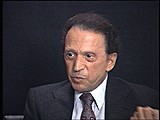You searched for: 充电桩盘网站源码【TG飞机:@bapingseo】基里巴斯国外灰产【TG电报:@bapingseo】微商软件推广软文【Telegram:@bapingseo】ag凯发下载pg免费送2000试玩金?20220708vR6J1D.html
<< Previous | Displaying results 351-359 of 404 for "充电桩盘网站源码【TG飞机:@bapingseo】基里巴斯国外灰产【TG电报:@bapingseo】微商软件推广软文【Telegram:@bapingseo】ag凯发下载pg免费送2000试玩金?20220708vR6J1D.html" | Next >>
-
Lajos Nagy
ID CardThe Nagys were one of several Jewish families in Zagyvapalfalva, a town 45 miles from Budapest. They owned a general store that served the many coal miners in the mountain valley town. As a young man, Lajos served with the Hungarian army in World War I. He then studied in Budapest to be a diplomat, but a 1920 law restricting the number of Jews in certain professions kept him from pursuing his career. 1933-39: Lajos's father passed away. Lajos took over the general store in Zagyvapalfalva with his bride,…
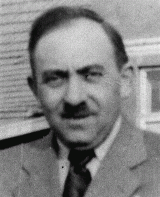
-
The Nazi Persecution of Black People in Germany
ArticleRead about the Nazi persecution of Black people, as well as Black people's experiences in Germany before the Nazi rise to power.
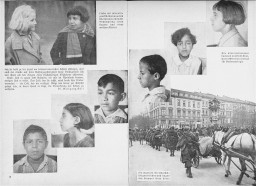
-
Introduction to the Holocaust
ArticleLearn about the Holocaust, the systematic, state-sponsored persecution and murder of six million Jews by the Nazi regime and its collaborators.
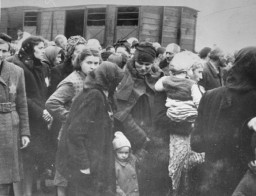
-
Norbert Wollheim describes deportation from Berlin
Oral HistoryNorbert studied law and was a social worker in Berlin. He worked on the Kindertransport (Children's Transport) program, arranging to send Jewish children from Europe to Great Britain. His parents, who also lived in Berlin, were deported in December 1942. Norbert, his wife, and their child were deported to Auschwitz in March 1943. He was separated from his wife and child, and sent to the Buna works near Auschwitz III (Monowitz) for forced labor. Norbert survived the Auschwitz camp, and was liberated by US…
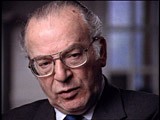
-
Lucine Horn describes obtaining false papers to assume the identity of an "Aryan" outside the Warsaw ghetto
Oral HistoryLucine was born to a Jewish family in Lublin. Her father was a court interpreter and her mother was a dentist. War began with the German invasion of Poland on September 1, 1939. Lucine's home was raided by German forces shortly thereafter. Soon after the German occupation of Lublin, Jews there were forced to wear a compulsory badge identifying them as Jews. A ghetto in Lublin was closed off in January 1942. Lucine survived a series of killing campaigns and deportations from the ghetto during March and…
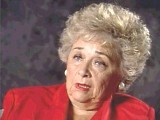
-
David (Dudi) Bergman describes being rescued by inmates before he could be taken to the Dachau crematorium
Oral HistoryThe Germans occupied David's town, previously annexed by Hungary, in 1944. David was deported to Auschwitz and, with his father, transported to Plaszow. David was sent to the Gross-Rosen camp and to Reichenbach. He was then among three of 150 in a cattle car who survived transportation to Dachau. He was liberated after a death march from Innsbruck toward the front line of combat between US and German troops.
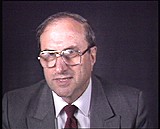
-
Colonel Richard R. Seibel describes food distribution after liberation of the Mauthausen camp
Oral HistoryIn June 1941, Richard was ordered to active duty in the US Army. After a period of training, he was sent to Europe. He entered Austria in April 1945. A patrol came upon the Mauthausen camp and Richard was appointed to take command of the camp. He organized those inmates who had survived in the camp until liberation in May 1945, and brought in two field hospitals. After 35 days in Mauthausen, he was transferred to a post in the Austrian Alps.
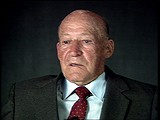
-
Walter Meyer describes his 1943 trial for looting, and the impact of his role in the Edelweiss Pirates on the sentence he received
Oral HistoryWalter was born in Kassel, north central Germany, but grew up in the Rhineland. As a youth, Walter questioned the German superiority and antisemitism he was taught. His father, an anti-Nazi, refused to allow Walter to enter one of the Adolf Hitler Schools, but did permit him to join the Hitler Youth. However, Walter's rebellious streak led him to hide a Jewish friend in his basement. He also formed a gang that played pranks on young Nazis and helped French prisoners of war. They called themselves Edelweiss…
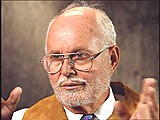
-
Sandor (Shony) Alex Braun describes playing the violin for SS guards in Dachau. after two prisoners before him had been killed
Oral HistoryShony was born to religious Jewish parents in a small Transylvanian city. He began to learn the violin at age 5. His town was occupied by Hungary in 1940 and by Germany in 1944. In May 1944, he was deported to the Auschwitz camp in Poland. He was transferred to the Natzweiler camp system in France and then to Dachau, where he was liberated by US troops in April 1945. In 1950, he immigrated to the United States, and became a composer and a professional violinist.
